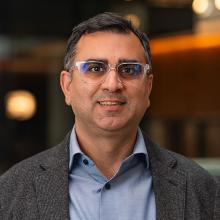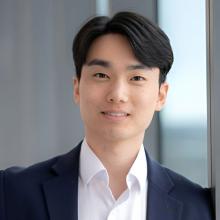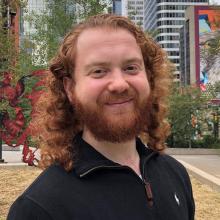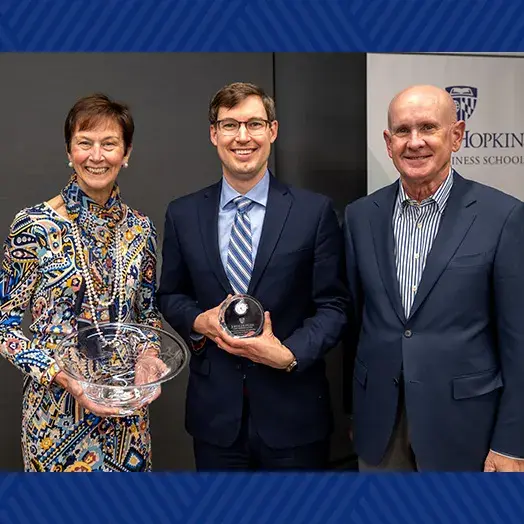Get to know Carey’s three new faculty members through their research, interests, and insights.
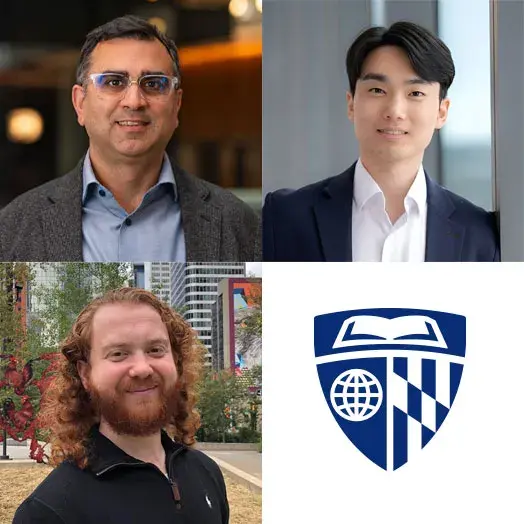
Meet Carey’s new faculty for the 2025-26 year
Can you see music in color? Are you a student of Thoreau? Is Blockbuster on your bucket list? Besides impressive careers and credentials, Johns Hopkins Carey Business School’s three newest faculty members bring their unique outlooks and interests to our community.
From exploring the intersection of human behavior and AI, to investigating the economics of innovation, and studying misinformation online, their work reflects the curiosity and creativity that drive Carey forward.
Bhaven Sampat (Research Professor, Economics) is an economist with faculty appointments at Carey and the School of Government and Policy. His research focuses on the economics and political economy of innovation and innovation policy. Among other topics, he has studied U.S. and global life science patent policy, the politics and economics of publicly funded science, the roles of government in pharmaceutical innovation, and the economic history of the U.S. biomedical research enterprise.
Q: What’s your best piece of advice for graduate students?
A: Read history. It provides perspective on the present, and ideas for the future. This is particularly important in uncertain times, and times of rapid technological advance. Plus, it’s fun!
Q: How do you like to relax, recharge, or reward yourself?
A: It’s not always relaxing—or for that matter, rewarding—but I’m a party-line Boston sports fan (Red Sox, Patriots, Celtics). It is much safer to say that now that I live in DC than during my years in New York City.
Q: Do you have a favorite quote or saying? What do you like about it?
A: I’m not sure about favorite, but I chuckled when I re-read this from Thoreau’s “Walden” recently:
"We are in great haste to construct a magnetic telegraph from Maine to Texas; but Maine and Texas, it may be, have nothing important to communicate."
I think it appeals to the amateur historian in me, and is a reminder that technology is a means not an end. That said, the economist in me wants to see an ex-post assessment of the claim.
“Occasionally, step back and think about why you’re doing something and why it matters, to you and to the world.”
Harang Ju, Assistant Professor
Harang Ju (Assistant Professor, Information Systems) researches human-Al collaboration and crypto, investigating how emerging technologies shape business and society. His current work explores how Al agents influence team dynamics and performance.
Q: What’s your best piece of advice for graduate students?
A: Occasionally, step back and think about why you’re doing something and why it matters, to you and to the world.
Q: What inspired you to pursue this field?
A: I’ve always wanted to research AI. There’s a ton of smart people in computer science and industry researching AI, but I think there’s so many important and interesting questions to ask at the intersection of AI engineering and human behavior that made me pursue research in human-AI collaboration.
Q: What is the most interesting thing about you?
A: I have synesthesia, with musical notes and colors.*
*Synesthesia is a phenomenon in which stimulating one sense will involuntarily trigger another sense. Chromesthesia, in particular, is when musical notes are perceived by the hearer as having specific, consistent colors.
What to Read Next

student experience
Hands-on today, hired tomorrow: The career power of experiential learning at CareyCameron Martel (Assistant Professor, Marketing) researches why people believe and share misinformation, what forces shape online social networks, and which content moderation interventions are effective for improving information quality online. He uses a variety of methods to examine these topics, including online survey experiments, social media field experiments, behavioral economic games, and computational social science analytics.
Q: What excites you about being at Carey Business School?
A: I am overjoyed to be joining Carey’s community of scholars who value curiosity coupled with humanity. Advancements in domains such as digital spaces and tools carry massive promise and innovative potential – but only if such developments are met with intentional thought and care about their impacts. I am excited to be part of Carey’s mission to commit to advancement and curiosity in service of promoting a better society.
Q: What inspired you to pursue this field?
A: My research investigates why people believe and share misleading content and how individuals and systems may best improve online information quality. In a digital age where false and fraudulent content is easier than ever to produce and spread, it is critical to develop systems for maintaining a well-informed society.
Q: What’s one of your top “bucket list” items?
A: To visit the last remaining Blockbuster video store in Bend, Oregon.
